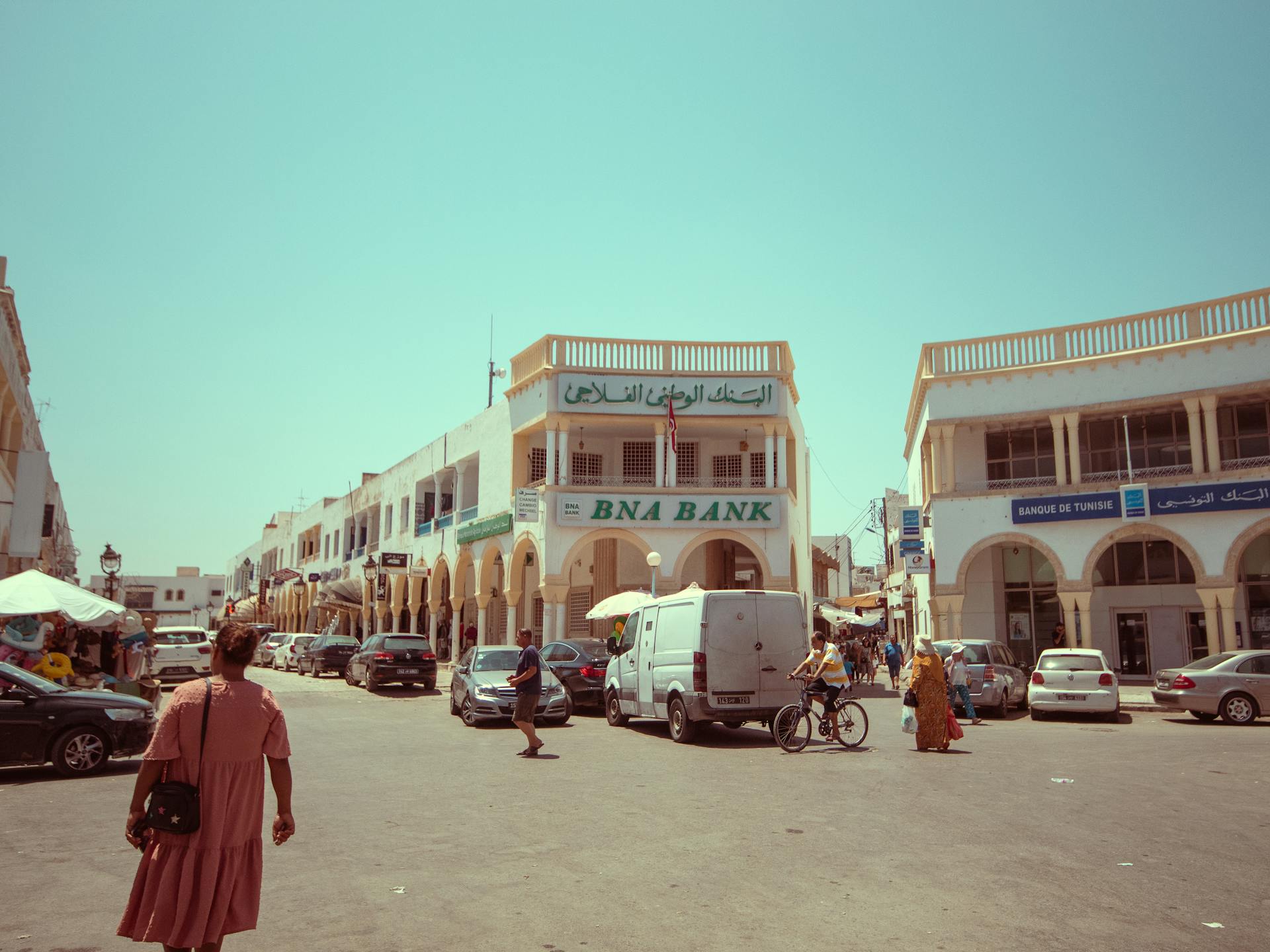
Africa has a vast and growing population, with over 1.3 billion people, yet many remain unbanked, relying on cash transactions and informal networks. This limits their access to financial services and economic opportunities.
The use of cryptocurrency in Africa is on the rise, with countries like Kenya and South Africa taking the lead in adopting digital currencies. In fact, a survey found that 22% of Kenyans have used cryptocurrency, with many using it to send money across borders.
A significant barrier to financial inclusion in Africa is the lack of access to traditional banking services, with an estimated 463 million adults in Africa lacking a formal bank account. Cryptocurrency has the potential to bridge this gap by providing a secure and efficient way to conduct transactions.
By leveraging digital currencies, Africans can access financial services, conduct transactions, and participate in the global economy, ultimately driving economic growth and development.
Additional reading: Crypto Currencies in India
Nigeria's Crypto Scene
Nigeria boasts the largest population and economy in Sub-Saharan Africa, and its crypto economy is also the largest, growing despite market turmoil.
The country's crypto economy has seen a growth rate of 9.0%, placing it third among the six countries in the top 50 by size globally whose crypto transaction volume grew year-over-year.
Nigeria has suffered from two major recessions since 2016, fueled by an unstable political situation, the COVID-19 pandemic, and the collapse of oil prices, leading to high unemployment and economic uncertainty.
The recent Naira crisis has exacerbated these issues, causing a cash shortage and uncertainty regarding the use of old notes, making cryptocurrency an attractive financial alternative.
Interest in Bitcoin and stablecoins has generally risen as the Naira's value has decreased, particularly during the most recent steep drops in June and July of 2023.
Nigeria's uncertain economic climate has encouraged many citizens to seek financial alternatives, increasing the value proposition of cryptocurrency.
The country's crypto economy alone generates a staggering 56.7 billion USD, constituting nearly half of the total volume in the sub-Saharan region.
Nigeria's adoption rate of 9% positions the country 3rd globally and establishes its leadership regionally.
Related reading: Sui Crypto Currency Value
Morocco: Rising Regulation
Morocco has made significant strides in the crypto landscape, securing a spot in the top 20 of Chainalysis' Global Crypto Adoption Index for the first time in the 2022 edition.
The kingdom has solidified its standing as a critical player in the virtual currency landscape of North Africa, ranking 5th in Chainalysis' MENA region assessment.
Despite initial governmental skepticism, Moroccan interest in virtual currency has surged, with the adoption rate projected to increase from 2.4% in 2021 to 3.1% in 2022, and further growth to 4.9% anticipated in 2023.
Morocco's growing interest in virtual currency is likely driven by the increasing confidence that regulatory clarity has brought to the market.
The country's sustained dedication to protecting consumers has helped promote crypto adoption and attracted traders, making it an attractive destination for those interested in the crypto space.
Sub-Saharan Economy Outlook
Sub-Saharan Africa's crypto economy is looking bright, with large countries like Nigeria already taking their place as global leaders in crypto adoption.
Regulatory clarity throughout the region is bolstering growth, and local crypto operators are primed to take advantage of it.
The key lesson from studying emerging markets is that residents of wealthier nations may have more cryptocurrency, but the latter has a greater day-to-day need for it.
This need is in line with the original vision for Bitcoin and the sector at large.
Blockchain Advancements
Cryptocurrency has emerged as a solution to foster financial inclusion, enabling individuals to participate in trading with minimal initial investment.
The rise of FinTech has further democratized access to the crypto space in Africa, catering to individuals from diverse socio-economic backgrounds.
African countries are advancing in the Global Cryptocurrency Adoption Index developed by Chainalysis.
This index reflects a substantial portion of the overall volume, considering transactions conducted on centralized platforms and peer-to-peer exchanges.
Some African nations continue to enforce bans on crypto assets, while others are adopting compromise measures and actively pursuing regulatory frameworks to navigate this evolving sector.
International Transfer Efficiency
Cryptocurrencies offer a decentralized and reliable means of transferring funds, leveraging blockchain technology to facilitate swift and cost-effective cross-border transactions in Africa.
This financial alternative is especially advantageous in rural areas with sparse traditional banking infrastructure, where access to reliable and secure transaction methods is limited.
With robust security measures, cryptocurrencies become appealing for transactions demanding trust and transparency, safeguarding currency value and bolstering reliability.
Leveraging blockchain technology, cryptocurrencies facilitate transactions in Africa, providing a secure and efficient means of transferring funds across borders.
Decentralizing Economies
The decentralized nature of crypto assets fosters a sense of security and independence.
In Sub-Saharan Africa, crypto assets are playing a vital role in safeguarding economies against the volatile nature of fiat currency and inflation.
Heightened economic uncertainties often erode trust in traditional financial systems, but crypto assets provide a hedge against these uncertainties.
Nigeria's record inflation rates have led to a widespread adoption of stablecoins, which serve as a hedge against Naira depreciation.
Ghanaian reliance on Bitcoin grows amid liquidity shortages in the cedi, demonstrating the potential of crypto assets to provide financial security in times of economic uncertainty.
Crypto adoption in Sub-Saharan Africa is growing rapidly, with large countries like Nigeria taking their place as global leaders in crypto adoption.
Financial Inclusion
Cryptocurrency has emerged as a solution to foster financial inclusion in Africa, enabling individuals to participate in trading with minimal initial investment. This technology has democratized access to the crypto space, catering to individuals from diverse socio-economic backgrounds.
In Sub-Saharan Africa, the popularity of trading digital currencies, such as Bitcoin, has soared, becoming a favored investment avenue. The rise of FinTech has further fueled this growth, making it easier for people to access and use cryptocurrencies.
Many countries in the region have struggled with rising inflation and debt, making cryptocurrency an attractive means of storing value, preserving savings, and attaining greater financial freedom. In Ghana, for instance, inflation reached 29.8% in June 2022, its highest level in two decades.
Ghanians have turned to Bitcoin as an alternative store of value, and Nigeria, Kenya, and South Africa have all faced similar problems in recent years, showing a great deal of grassroots cryptocurrency adoption. This is likely due to the fact that Bitcoin offers a means of hedging against the devaluation of local currencies.
The decentralized nature of crypto assets fosters a sense of security and independence, which is particularly appealing in regions with high inflation and economic uncertainty. For instance, in Nigeria, the widespread adoption of stablecoins serves as a hedge against Naira depreciation.
African countries are advancing in the Global Cryptocurrency Adoption Index, with some nations adopting compromise measures and actively pursuing regulatory frameworks to navigate this evolving sector. This shift towards greater regulatory clarity is likely to bolster growth in the region's crypto economy.
Cryptocurrency has played a vital role in safeguarding economies against the volatile nature of fiat currency and inflation. The decentralized nature of crypto assets offers a sense of security and independence, making them an attractive option for individuals in regions with high inflation and economic uncertainty.
Country-Specific Crypto Adoption
Sub-Saharan Africa commands a notable 9.3% share of the global cryptocurrency transaction volume, as reported by Chainalysis.
Ghana is a significant player in cryptocurrency transactions within sub-Saharan Africa, securing the fifth position. Many individuals in the country turn to Bitcoin as a hedge against economic instability, reflecting a growing adoption trend.
The use of cryptocurrencies remains officially prohibited within Ghana’s borders, despite being a popular choice for many. In July 2023, the Ghanaian Minister of State for Finance reiterated the ban on all virtual currency-related transactions.
North Africa, particularly Morocco and Egypt, is witnessing a burgeoning adoption rate of digital currencies. Interest in cryptocurrencies is rising in these countries, driven by the aspirational allure of successful cryptocurrency investors.
Blockchain technology offers inclusive investment avenues and a compelling alternative to conventional financial systems in the MENA region. Crypto fund transfers contribute significantly, accounting for 7.2% of the global total in this region.
South Africa's Crypto Market
South Africa's Crypto Market is a rapidly growing space, with the country's first cryptocurrency exchange, BTC Africa, launching in 2013. This marked a significant milestone in the country's adoption of digital currencies.
South Africa's crypto market is largely driven by its tech-savvy youth, who are eager to explore new financial opportunities. In fact, a survey found that 71% of South African millennials are interested in investing in cryptocurrencies.
The Reserve Bank of South Africa has taken a cautious approach to regulating cryptocurrencies, issuing a warning in 2014 that they pose a risk to financial stability. Despite this, the country's crypto market continues to thrive, with many investors seeing it as a way to diversify their portfolios.
The Johannesburg Stock Exchange has also taken notice of the growing interest in cryptocurrencies, with several companies listing cryptocurrency-related stocks on the exchange. This has helped to increase mainstream awareness and understanding of digital currencies in South Africa.
Explore further: Currency Exchange in Argentina
Sources
- https://www.chainalysis.com/blog/africa-cryptocurrency-adoption/
- https://www.chainalysis.com/blog/subsaharan-africa-crypto-adoption-2024/
- https://techpoint.africa/2024/07/18/top-10-cryptocurrency-exchanges-in-africa/
- https://www.africanenda.org/en/blog/2023/the-rise-and-stall-of-cbdcs-and-cryptocurrencies-in-africa-whats-next
- https://www.capmad.com/technology-en/cryptocurrency-in-africa-investing-in-the-future/
Featured Images: pexels.com


